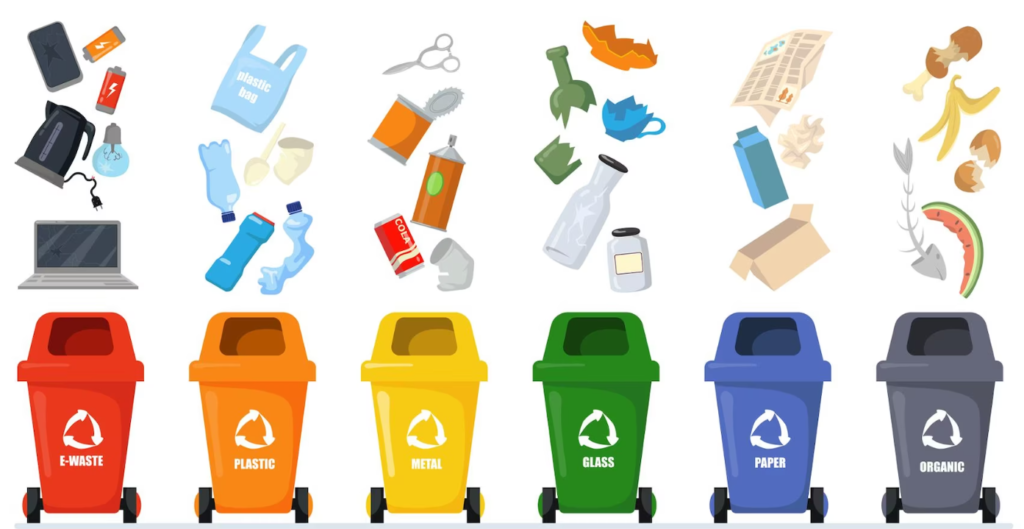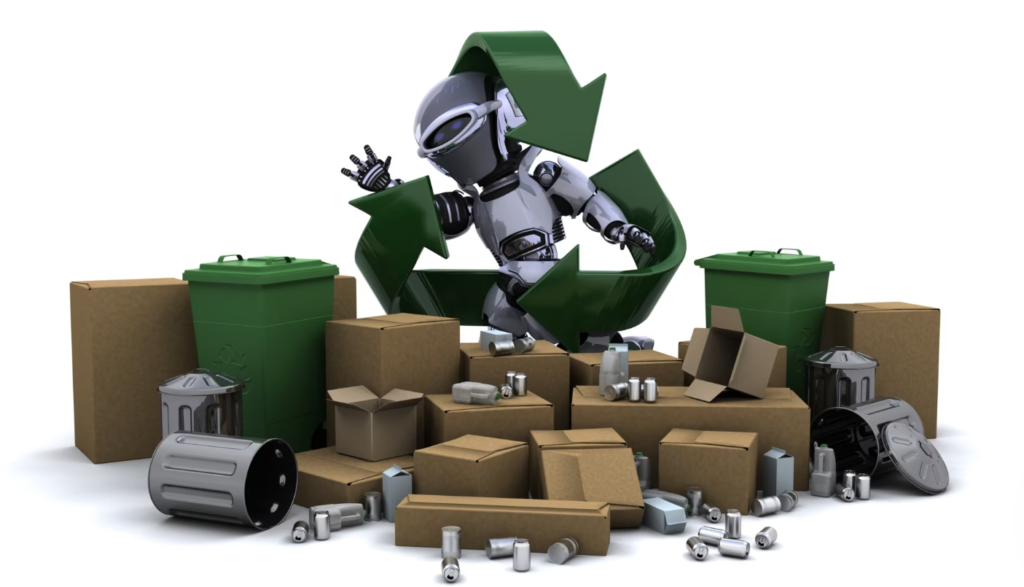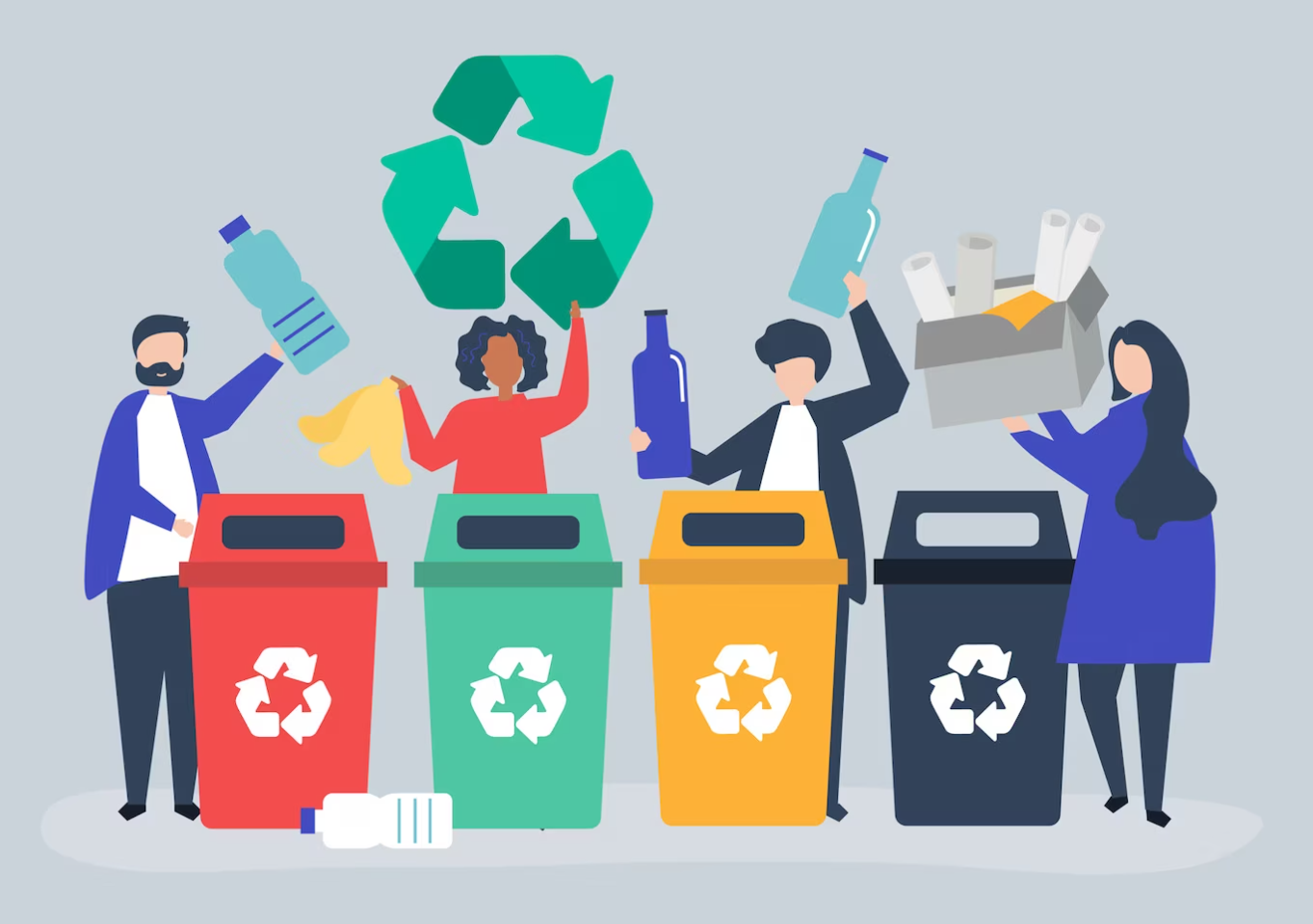Introduction
The world is facing a pressing challenge – the management and reduction of waste. As waste continues to accumulate, innovative technologies are stepping in to offer sustainable solutions. “Reducing Waste with Innovative Tech” explores how technology is transforming waste management, from real-time monitoring to advanced recycling methods.
Table of Contents

The Growing Problem of Waste
The accumulation of waste poses significant environmental and economic challenges globally. Traditional waste management methods often fall short in effectively tackling the growing waste problem, leading to pollution, resource depletion, and health hazards.
Leveraging Technology for Sustainable Solutions
In a bid to address the waste crisis, technology is emerging as a powerful ally. Innovative solutions are harnessing the potential of the Internet of Things (IoT), artificial intelligence (AI), blockchain, and robotics to revolutionize waste management practices.
Smart Bins and Intelligent Waste Management
Smart bins equipped with sensors are a prime example of waste reduction technology. These bins can monitor their fill levels and send real-time alerts to waste management teams, enabling efficient collection and reducing unnecessary trips.
IoT and Real-time Monitoring of Waste

The IoT’s integration with waste management goes beyond smart bins. Sensors deployed in dumpsters, waste containers, and recycling centers provide real-time data on capacity, temperature, and even hazardous materials, facilitating proactive management.
AI and Predictive Analysis for Efficient Waste Collection
Artificial intelligence analyzes data from various sources to predict waste generation patterns. By identifying peak waste times and locations, waste collection routes can be optimized for efficiency, reducing fuel consumption and emissions.
Blockchain for Transparent Waste Management
Blockchain technology enhances transparency in waste management by creating an immutable record of waste transactions. This ensures accountability throughout the waste disposal and recycling processes.
Robotic Sorting Systems in Recycling
Advanced robotics are streamlining recycling operations. Robotic sorting systems can efficiently identify and separate recyclable materials from mixed waste, increasing recycling rates and minimizing the amount of waste sent to landfills.
Turning Waste into Resources through Innovation
Innovators are exploring ways to transform waste into valuable resources. From converting organic waste into biogas through anaerobic digestion to repurposing plastic waste into construction materials, technology is turning waste into a sustainable asset.
Waste Reduction Tech in Different Sectors

Waste reduction technology isn’t limited to a single industry. It’s making waves in sectors such as retail, hospitality, healthcare, and manufacturing. Efforts include minimizing food waste, optimizing supply chains, and adopting circular economy principles.
Challenges and Limitations of Waste Reduction Tech
While technology offers promising solutions, challenges remain. Implementation costs, interoperability of different technologies, and the need for infrastructure upgrades can hinder widespread adoption.
Future Prospects and Innovations
The future of waste reduction technology is bright. Innovations like self-sorting waste bins, waste-to-energy technologies, and decentralized waste management networks hold the potential to revolutionize waste management on a global scale.
The Environmental Impact of Waste Reduction Tech
The positive environmental impact of waste reduction technology cannot be overstated. By minimizing waste sent to landfills, conserving resources, and reducing emissions, these technologies contribute significantly to a more sustainable planet.
Conclusion
“Reducing Waste with Innovative Tech” underscores the transformative role technology plays in waste management. From revolutionizing collection methods to reimagining recycling processes, technology is at the forefront of sustainable waste reduction efforts.
FAQs
Can waste reduction technology be applied in developing countries?
Yes, waste reduction technology can be tailored to the specific needs of developing countries. Modular and scalable solutions can be implemented to address waste management challenges.
How does waste reduction technology benefit businesses?
Waste reduction technology helps businesses cut costs associated with waste disposal, enhance their sustainability image, and comply with environmental regulations.
What role can consumers play in waste reduction efforts?
Consumers play a crucial role by adopting responsible consumption habits, recycling, and supporting businesses that prioritize waste reduction and sustainability.
Is waste reduction technology a one-size-fits-all solution?
No, waste reduction technology should be adapted to local waste management infrastructure, regulations, and waste composition to ensure effectiveness.
What innovations can we expect in the near future for waste reduction?
Expect to see advancements in biodegradable materials, decentralized waste management solutions, and technology-powered consumer awareness campaigns.

